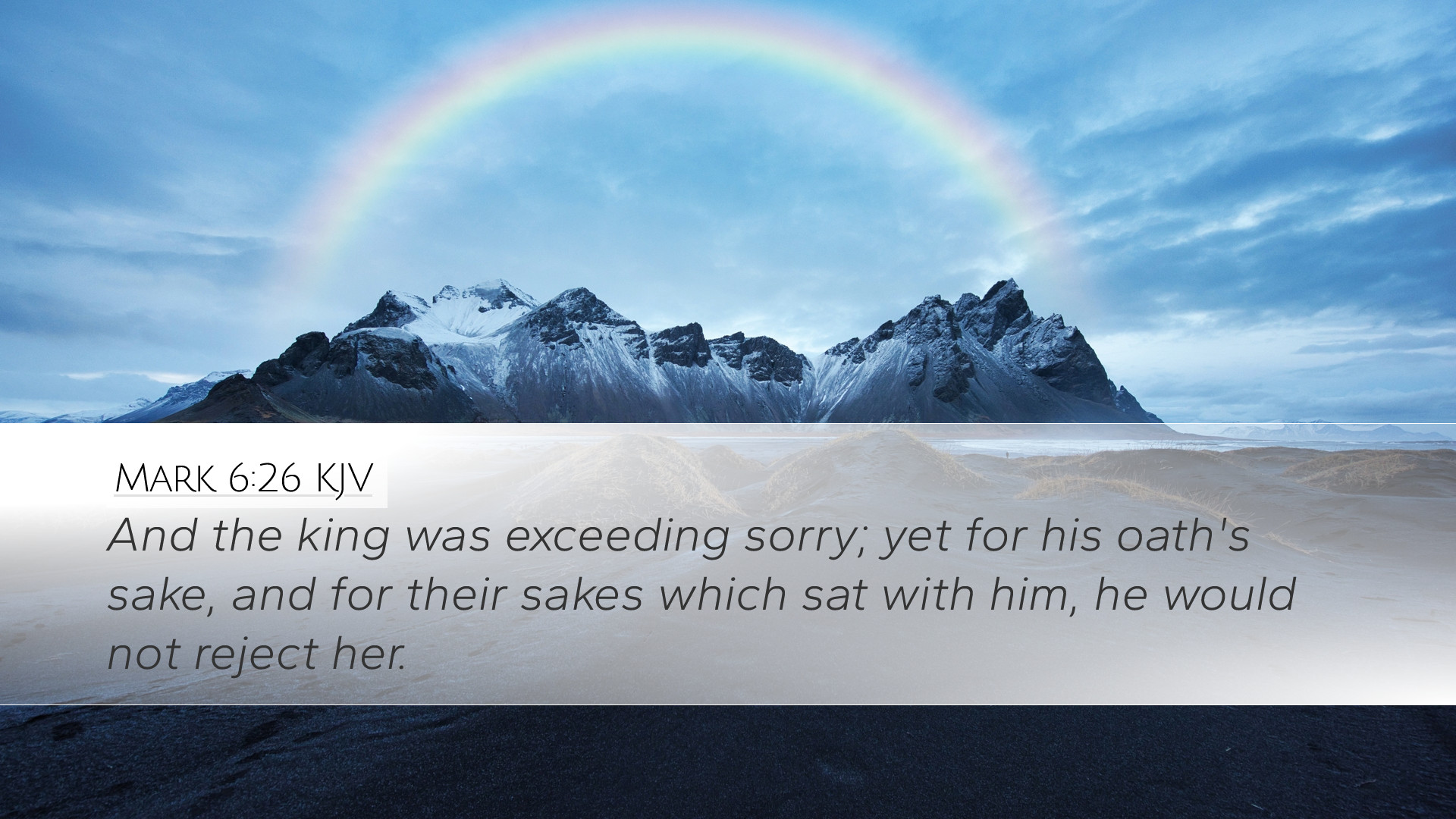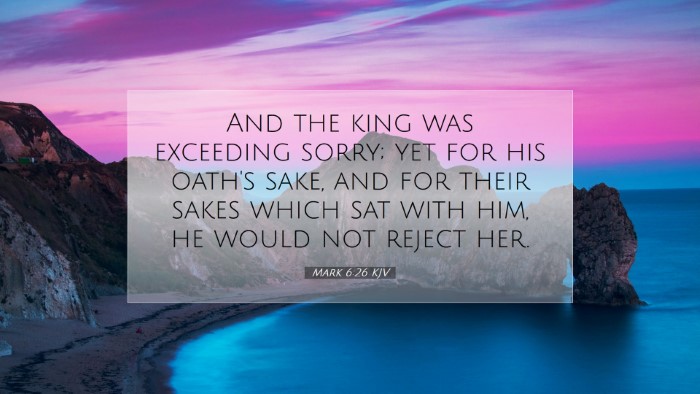Commentary on Mark 6:26
“And the king was exceeding sorry; yet for his oath’s sake, and for their sakes which sat with him, he would not reject her.”
Introduction
This verse is pivotal in understanding the events leading to the martyrdom of John the Baptist. The emotional conflict faced by King Herod Antipas is profound, illustrating the struggle between personal morals and public commitments. Needing to reconcile his duty as a ruler with his genuine regret serves as a reminder of the complexities leaders often face in their moral standings.
Contextual Analysis
In order to truly grasp the significance of verse 26, it is critical to consider the surrounding narrative. Herod, influenced by the seductive dance of Salome and the intoxicating atmosphere that accompanied it, finds himself compelled to fulfill a rash promise made in front of his guests.
- Historical Context: This event occurs during a time of political tension and moral ambiguity in Judea, where Herod is manipulating power dynamics for personal gain and appeasement.
- Cultural Implications: The customs of feasting and oath-taking in Jewish tradition carry immense weight, indicating that oaths made in the presence of others must be honored, even at a personal cost.
The Nature of Herod's Dilemma
Matthew Henry insightfully observes that Herod’s sorrow reflects a conflicted conscience, one that sees the righteousness of John’s character compared to the evil motive behind the request for his head. This narrative illustrates the serious implications of a ruler's decisions, hinting at a complex mixture of fear, pride, and regret.
Albert Barnes elucidates the psychological torment within Herod, indicating that while he was “exceeding sorry,” his fear of losing face among his guests and maintaining his perceived authority ultimately prevailed. This shows the perilous nature of leadership, in which public perception can overshadow personal integrity.
Divine Sovereignty vs Human Responsibility
In analyzing Mark 6:26 through a theological lens, one finds a rich tension between God's sovereignty and human choices. Adam Clarke points out that while God permits the actions of rulers, their moral failings often lead to grave injustices. Here, Herod’s decision not to reject the request signifies a tragic surrender to human temptation, at the expense of justice.
Key Theological Insights:
- Free Will: Herod's actions illustrate the exercise of human choice, demonstrating that even those in control can err in judgment.
- Moral Responsibility: The tension between nature and nurture in moral decision-making raises questions about accountability in leadership roles.
- The Consequences of Sin: Herod’s sin not only impacts him but also contributes to the martyrdom of an innocent man, pointing to the broader implications of sinful decisions.
Lessons for Today’s Leaders
From Herod's regrettable decision, contemporary leaders can glean significant lessons about integrity and the weight of promises:
- The Importance of Integrity: Leaders are continuously faced with choices that may challenge their moral compass. Maintaining integrity in difficult situations is paramount.
- Impact of Peer Pressures: Just as Herod was influenced by the expectations of his guests, today’s leaders should be wary of allowing external pressures to dictate their ethical decisions.
- The Weight of Oaths: The binding nature of promises, particularly in contexts of authority, underscores the need for thoughtful decision-making.
Final Reflections
Mark 6:26 is a powerful verse that encapsulates the struggle between one’s convictions and societal pressures. Herod’s failure to act righteously had monumental consequences, serving as a somber reminder that choices made in haste, particularly by those in authority, can lead to irreversible outcomes.
This verse challenges pastors, students, scholars, and laypersons alike to reflect on their moral and ethical standpoints. May we learn from Herod's lamentation—a cautionary tale of the dangers of surrendering our convictions to the whims of pride and fear.


